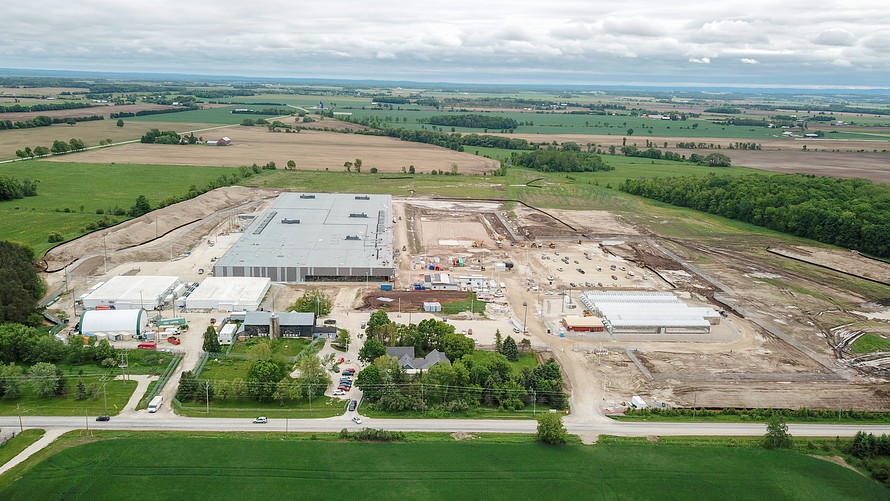Pranav Sood took his cannabis tech company to California to learn from one of the world’s largest legal marijuana markets, and now the Canadian is bringing his software back home to capitalize on the legal recreational market here.
Founded in Canada in 2014, Trellis Solutions Inc. is a cannabis software company that allows growers to track plants as they move through the supply chain, from cultivation to distribution. The software generates regulator-mandated compliance reports and analytics, such as plant-mortality rate and cost per gram, that help licensed producers optimize their operations.
Trellis is one of Canada’s early “weed tech” or “canna-tech” companies, as they are sometimes called. Four years ago, there were fewer than 20 Canadian licensed producers, but that number has jumped to 115 with legalization looming, and many ancillary tech companies, whether it’s inventory management or point of sale, are hoping to cash in on what Deloitte predicts could be a $22.6-billion industry.
But while Trellis started in Canada, it has focused its expansion in California since 2015. Now, Trellis is gearing up to take on the Canadian market next year. It won’t be easy. The Canadian cannabis seed-to-sale software space has been cornered by competitor Ample Organics Inc., which works with roughly three-quarters of the country’s licensed producers.
Mr. Sood came up with the idea for Trellis in 2013 when he was working as a consultant at Deloitte after graduating from the University of Western Ontario’s Richard Ivey School of Business. Canada had just released draft regulations for its revamped medical-marijuana program, which authorized licensed producers to grow medical cannabis and sell it directly to patients, creating a new market virtually overnight.
“It’s an industry that mixes agriculture with health care, retail and a supply chain. And all of that burden is put on a single licensed operator,” says Mr. Sood.
To develop a software platform for growers and dispensaries, he partnered with Guelph-based licensed provider MedCannAccess to learn the ins and outs of the cannabis supply chain. After MedCannAccess was acquired by Tweed Marijuana Inc., now Canopy Growth Corp., in 2015, he further developed Trellis’s software with 7ACRES, a licensed cannabis facility in Kincardine, Ont.
But Mr. Sood had set his sights on California early on.
“As one of the largest markets for cannabis in North America, I thought if I can go to California, and if I can win over the operators there, then I can do it anywhere,” he says.
Mr. Sood applied and became part of Oakland, Calif.-based Gateway Incubator’s first cohort in 2016, a cannabis-business incubator that provided US$30,000 in funding and access to industry mentors. To date, the software company has secured $2.7-million in funding, with its biggest investment from Snoop Dogg’s venture-capital firm Casa Verde Capital. Trellis has signed on some of California’s largest industry names, such as Harborside, one of the biggest cannabis dispensaries in the state, and Jungle Boys, a Los Angeles-based group of growers known for their designer-cannabis strains. Trellis, with offices in Oakland, Calif., and Toronto, currently has 130 clients, including in other states such as Colorado and Arizona, and internationally in Jamaica and Australia.
Purple City Genetics, an Oakland-based cannabis nursery, uses Trellis’s software because it’s a small company that communicates clearly, says general manager Ethan Frank.
“Every other seed-to-sale platform we’ve thought about going with has thrown out a bunch of promises and doesn’t follow through,” he says. “Anything I ask, if Trellis says they can do it, they follow through.”
But Trellis’s real test may be cracking the Canadian market. Matt Shalhoub, managing director of Green Acre Capital, a Canadian investment fund that primarily invests in ancillary cannabis companies, including Canadian software-market leader Ample Organics Inc., says seed-to-sale software can be sticky.
“This is the type of software that’s the lifeblood of a lot of these producers. It becomes very difficult or challenging to get them to switch off a platform they’re comfortable with and that Health Canada knows and is comfortable with,” Mr. Shalhoub says.
So far, Trellis has partnered with one Canadian licensed producer, 7ACRES, and four producers going through the licensing process.
Mr. Sood says there’s demand for an alternative to Ample, and working in California gave Trellis opportunities to learn from a more mature market. For example, in California, producers have more options available when making products derived from cannabis, such as cannabis oil. The ability of Trellis’s software to track a wider variety of extraction methods could be a strength as Canada updates its own regulations on those products next year.
“We’re unique in that we have a physical presence in both markets and we have expertise on operations and regulations in Canada and the U.S., and that allows us to play in both,” Mr. Sood says.
Trellis plans to focus on penetrating the Canadian market in 2019. Ahead of that, the company intends to hire nine employees in Toronto and between five to 10 in Oakland by the end of the year, potentially almost doubling its work force from its current 22.
Whether in Canada or elsewhere, Mr. Shalhoub says one advantage for cannabis-tech businesses right now is a lack of competition from mainstream-tech companies, with one notable exception being Shopify Inc. Earlier this year, the e-commerce firm won government contracts to be the point-of-sale software behind recreational-pot purchases in three provinces.
“There’s a real place for niche operators that are building very customized software for specific problems,” Mr. Shalhoub says.
Credit: https://www.theglobeandmail.com







